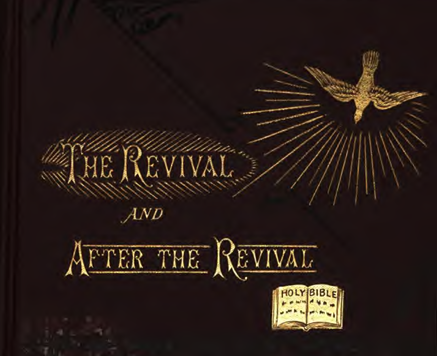But is not the work of grace carried on in this world through the truth? How can we think of a work as divine if it has a little bit of Scripture but no doctrine? Is not instruction in the truth as important as human fervor? Is not the Word of God the medium through which the Spirit of God operates? How, then, can I account for this marvelous work, seeing that the presentation, the defense, and the application of strong, telling truth are so notably absent?
But is it absent? Are the people thus influenced by an excitable, pious young evangelist ignorant of the truth, which is “mighty to save?” He does not teach them, but have they not been taught ? They have received little thought from him, but do they not have the thought? Isn’t this the wand that awakens latent truth, long known and long buried in men and women who have lived for the sake of the world despite the truth they hold? May not his power lie in what we may call the “heat rays” of the Sun of Righteousness? In a dark room, I once saw Professor Tyndal set fire to a piece of paper held at a great distance from his camera. The first that I saw of the paper was when it was blazing brilliantly at the touch of these invisible rays. Is it not a fact that, through home influence, Sundayschool teaching, pulpit preaching, the religious press, and the reports of sermons and of religious movements in the secular press, there is a great body of biblical and theological knowledge in the community more than sufficient to save with an everlasting salvation the men who hold it, but which lies impotent and dead in the brains of the people whose affections are concentrated on worldly things, and whose consciences are hardened and benumbed by self-indulgence and worldliness? The knowledge of truth is not everything. The Bible is a sword, but it is the sword of the Spirit. “Not by might, nor by power, but by my Spirit, saith the Lord of Hosts.” Men may hold the truth in its fullness and harmony; they may think about it, talk about it, discuss it, and profess it, but the truth itself is powerless without those other and invisible energies of the Spirit of God, which make the truth “mighty to save.” Here, then, is an atmosphere illuminated with truth but as cold as the Arctic regions and as barren of all spiritual life. But the seeds of truth have been scattered through this chilly realm. Here comes a young agent who has submitted himself to the Lord of Hosts, and he holds the people and quickens into convicting, converting, and sanctifying power the dead truth gathered over the years from the various teaching agencies of the Church and scattered throughout our people. The “boy preacher” would be nothing without the pulpit, the Sunday school, the family, and the press that have gone before him; and with all these, and with every natural element of power that he could command but does not, he would still be nothing without the omnipotent forces of the divine Spirit, which are imparted to a divinely selected and truly consecrated soul.
By J. H. VINCENT
Updated 2023 Nathan Zipfel
